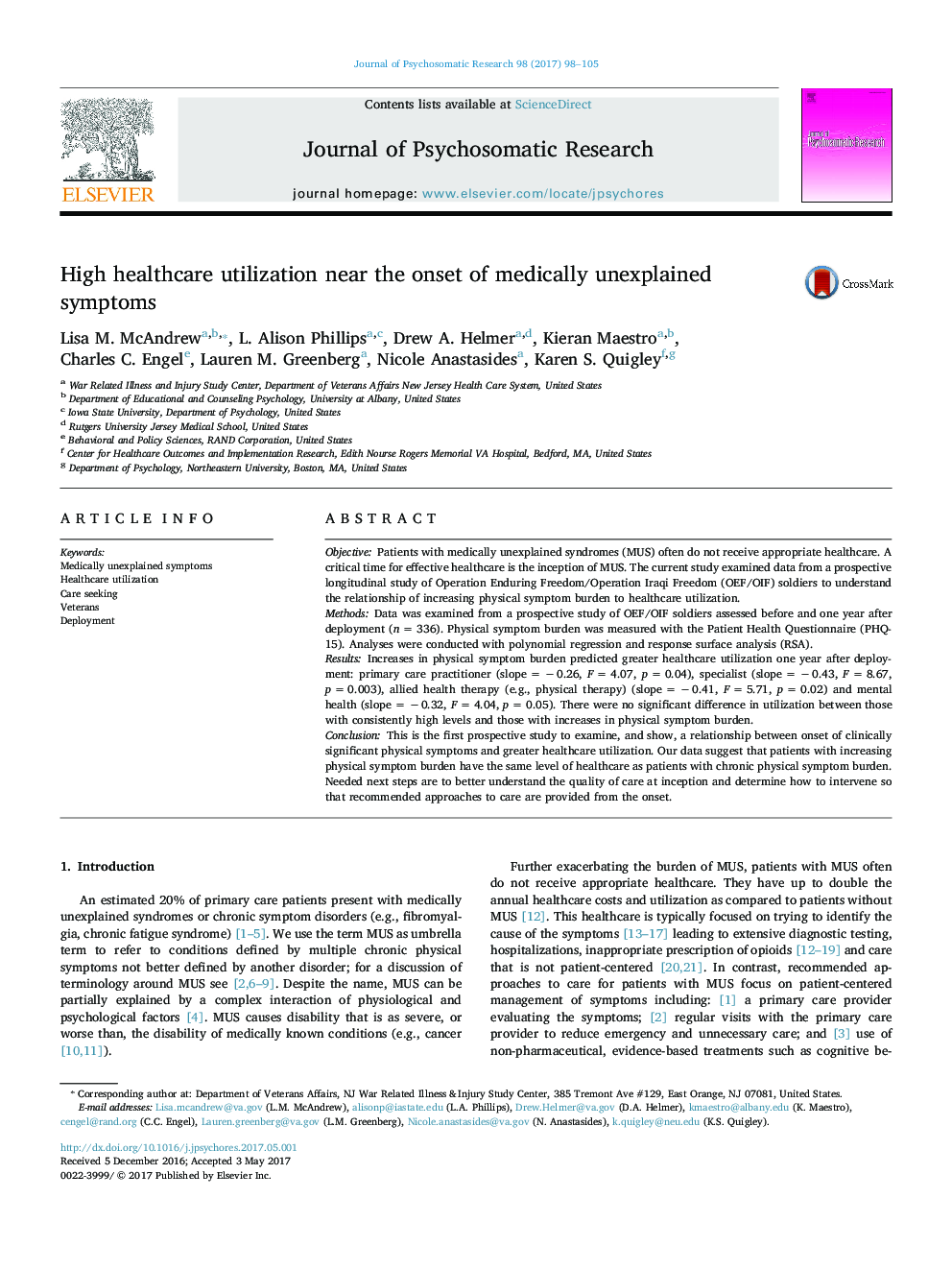| Article ID | Journal | Published Year | Pages | File Type |
|---|---|---|---|---|
| 5045944 | Journal of Psychosomatic Research | 2017 | 8 Pages |
â¢OEF/OIF soldiers with significant physical symptoms increased from 14% before deployment to 33% one year after deployment.â¢Increases in physical symptom burden predicted greater healthcare utilization one year after deployment.â¢Soldiers with increased physical symptoms had the same levels of healthcare as soldiers with chronic physical symptoms.
ObjectivePatients with medically unexplained syndromes (MUS) often do not receive appropriate healthcare. A critical time for effective healthcare is the inception of MUS. The current study examined data from a prospective longitudinal study of Operation Enduring Freedom/Operation Iraqi Freedom (OEF/OIF) soldiers to understand the relationship of increasing physical symptom burden to healthcare utilization.MethodsData was examined from a prospective study of OEF/OIF soldiers assessed before and one year after deployment (n = 336). Physical symptom burden was measured with the Patient Health Questionnaire (PHQ-15). Analyses were conducted with polynomial regression and response surface analysis (RSA).ResultsIncreases in physical symptom burden predicted greater healthcare utilization one year after deployment: primary care practitioner (slope = â 0.26, F = 4.07, p = 0.04), specialist (slope = â 0.43, F = 8.67, p = 0.003), allied health therapy (e.g., physical therapy) (slope = â 0.41, F = 5.71, p = 0.02) and mental health (slope = â 0.32, F = 4.04, p = 0.05). There were no significant difference in utilization between those with consistently high levels and those with increases in physical symptom burden.ConclusionThis is the first prospective study to examine, and show, a relationship between onset of clinically significant physical symptoms and greater healthcare utilization. Our data suggest that patients with increasing physical symptom burden have the same level of healthcare as patients with chronic physical symptom burden. Needed next steps are to better understand the quality of care at inception and determine how to intervene so that recommended approaches to care are provided from the onset.
